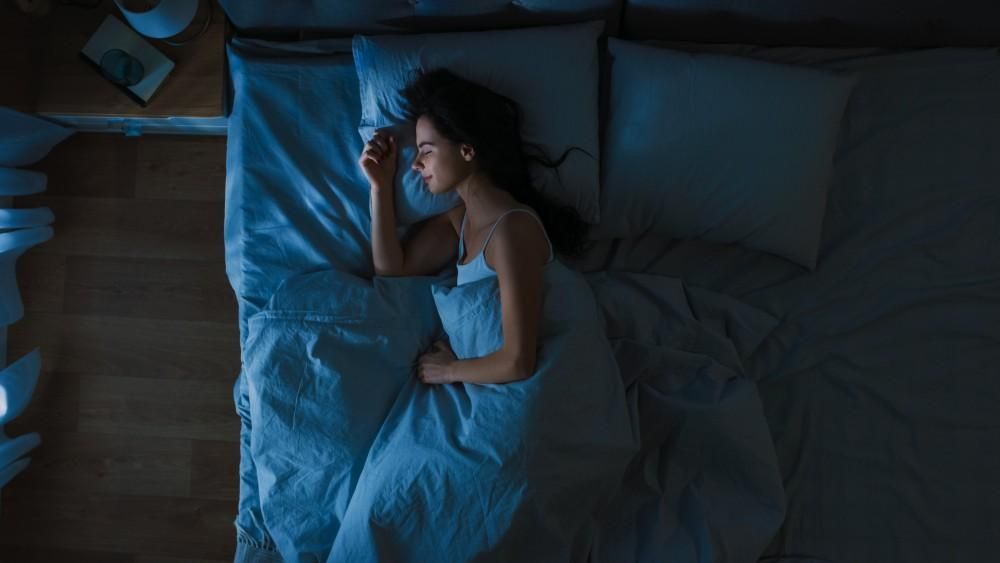Adults need about eight hours of sleep per night to function correctly, but most don’t regularly get that amount. There are various reasons for lack of sleep, including stress, anxiety, and medical issues like sleep apnea.
Insomnia is a problem that affects many people, making it hard for them to fall asleep or stay asleep. It can be either short-term or chronic, making the days seem long and drawn out as you daydream of finally resting.
If you’re tossing and turning all night and are ready for help, the team at Carolina Wellness Psychiatry can help.
Our team consists of Dr. Elizabeth Bullard, Dr. Allison Foroobar, and Dr. Sarah Gilbert. Dr. Bullard and Dr. Foroobar are both esteemed psychiatrists, while Dr. Gilbert is an experienced psychologist, and all of them offer treatment to help you finally get the sleep you require.
Causes of restless sleep
If you find yourself rolling around all night staring at the ceiling, you may be suffering from one of several issues, including:
Insomnia
Insomnia is a sleep disorder characterized by difficulty sleeping and staying asleep for a while. Restless sleep is a symptom of insomnia that may last for a few days or weeks.
Stress
Family problems, work issues, and medical conditions can all cause extreme stress, sometimes leading to trouble sleeping. Stress also makes you tense your muscles, leading to difficulty relaxing enough to get to sleep.
Anxiety
Anxiety is a common mental health problem that makes you worry about things more than usual. When your mind is racing, and you’re anxious about life, it’s common to toss and turn throughout the night.
Medications
Particular prescription and over-the-counter medications lead to trouble sleeping. Diuretics, certain antidepressants, steroids, and some cold medicines make it extremely hard to sleep overnight.
Medical problems
Sleep apnea is one of the foremost medical issues that leads to restless sleep. Other conditions, such as restless leg syndrome, also make it hard to get decent rest.
Signs you need help
You may or may not realize that you’re not sleeping well. Although you may be asleep, you might not be getting enough good-quality sleep. If you find yourself tossing and turning or struggling to get to sleep, there are several signs and symptoms you may experience, including:
- Irritability
- Difficulty staying asleep
- Daytime fatigue
- Trouble with memory
- Difficulty making decisions
- Physical fatigue
- Depression
- Personality changes
Anytime you’re struggling to sleep, you need to seek help. Sleep is vital to your overall health and wellness. Without the proper amount of sleep, your mind and body suffer greatly.
If you’re not sleeping due to stress or anxiety, calming strategies before bed can help settle the mind. However, if you aren’t successful at destressing, seeking help is essential.
Treatment for insomnia
No matter what’s causing trouble sleeping, the team at Carolina Wellness Psychiatry can help. We evaluate your sleep habits and listen to the symptoms you’re experiencing to determine the root cause of the sleep problem.
Depending on the cause of trouble sleeping, we offer various forms of treatment. For instance, if you’re living with sleep apnea or restless leg syndrome, we refer you to a specialist for the proper treatment.
We also offer several other therapies for difficulty sleeping, including the following:
Psychotherapy
Cognitive-behavioral therapy, or CBT, is one of the psychotherapy strategies we use to help you sleep better. It allows you to view problems from a different, and more positive, perspective. We offer various CBT strategies, including biofeedback, progressive muscle relaxation, and light therapy.
We also provide breathing exercises and healthy sleep strategies to put you on the path to a better night’s rest.
Medication management
Because some medications lead to insomnia or sleep difficulties, we evaluate your regular drugs to determine which may be disrupting rest. We can then change your medications to help you finally sleep at night.
Sleep hygiene changes
Sleep hygiene means healthy sleep habits that give you meaningful rest throughout the night. Some sleep hygiene strategies include:
- Going to be at the same time each night
- Avoiding eating before bed
- Limiting or avoiding screen time before bed
- Making a comfortable environment in the bed
- Not watching TV in bed
You should also avoid napping during the day to ensure you’re tired enough to sleep overnight.
We may combine several treatments to give you the best chance of sleeping through the night.
To get help for mental health problems or insomnia, call our office today at 919-446-3232 to schedule an appointment, or request a consultation on the website.




